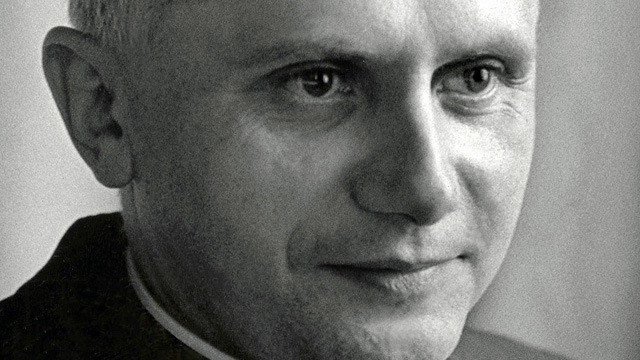Does the Vatican’s new document calling for a “central world bank”and a “supranational authority” to advance the common economic good mean that Pope Benedict supports the complaints behind the Occupy Wall Street movement?
“ ‘The basic sentiment’ behind the protests is in line with Catholic social teaching and the new document on global finance issued Oct. 24 by the Pontifical Council for Justice and Peace,” council President Cardinal Peter Turkson, said to the National Catholic Reporter.
But a debate over the authority of the document, and the requirement (or not) of Catholics to support it, is now being waged by some of America’s most prominent Catholic writers, scholars and activists.
You can read the full text of the document, Note on financial reform from the Pontifical Council for Justice and Peace, in the embed below. Among the findings are calls for:
The world’s peoples to adopt an ethic of solidarity as the animating core of their action
— A “world political authority” to manage “the growing interdependence between states and regions of the world becomes more and more obvious as well as the need for answers that are not just sectorial and isolated, but systematic and integrated, rich in solidarity and subsidiarity and geared to the universal common good”
— A “central world bank” that regulates the flow and system of monetary exchanges similar to the national central banks
Note on financial reform from the Pontifical Council for Justice and Peace
Many conservative Catholics writers, who often defend the Vatican against critique, have suggested that the council either lacks the authority to compel Catholics to support it, or that the media is misrepresenting the full vision of the document. Meanwhile, liberal Catholics who tend to emphasize the church’s teachings on social justice are heralding the document as proof of the church’s solidarity with global economic protests and those who are suffering during this time of economic downturn.
Here’s the view from the blogosphere:
The Catholic League’s Bill Donohue notes that the document was not penned by Pope Benedict and lacks the authority of an encyclical.
George Weigel, writing in the National Review, shared Donohue’s sentiment: “The document is a ‘Note’ from a rather small office in the Roman Curia. The document’s specific recommendations do not necessarily reflect the settled views of the senior authorities of the Holy See.” Further, Weigel suggests that Catholics do not need to agree with the recommendations, writing, “Catholics (and others) are entirely free to disagree — as many already have, and vociferously — with the specific suggestions of the Justice and Peace document.”
At CatholicVote.org, Thomas Peters writes, “Liberal Catholic routinely (and in this case) try to read the church’s social teaching as dogmatic while choosing to view the church’s moral and religious teaching as optional. In fact, the church herself is always careful to make clear that her moral and religious teaching is dogmatic and binding while her social teaching — and particularly her economic teaching — is exhortative and prudential.”
At the National Review, Samuel Gregg says Catholics should feel free to question the economic recommendations of the council: “Many of its authors’ ideas reflect an uncritical assimilation of the views of many of the very same individuals and institutions that helped generate the world’s most serious economic crisis since the Great Depression.. . . We can surely do better.”
Nicholas Hahn at Real Clear Religion called the document “incompetent babble on financial reform.”
Surveying the scene for Religion News Service, Catholic journalist David Gibson suggested that the ‘cafeteria' label doesn’t just apply to liberal Catholics, with so many conservatives rejecting the council’s recommendations. Among the responses on the left:
At the National Catholic Reporter, Sean Michael Winters notes: “It didn’t take long for certain conservative critics to denounce the document released yesterday by the Pontifical Council for Justice and Peace regarding the world financial crisis. This is the same crowd which, on other issues, points to similar Vatican documents and invests them with enormous authority. But not now. . . What is curiously absent from all these (conservative) interventions and analysis is any attempt to wrestle with the issues the document does raise.”
“When it comes to economic justice, Pope Benedict XVI is to the left of President Obama. Heck, he is even to the left of Nancy Pelosi,” Thomas Reese, S.J., wrote in support of the document.
“The Vatican’s timely call for global economic justice should also inspire U.S. Catholic bishops, scheduled to gather for a national meeting next month, to start offering a bolder critique of economic libertarianism and anti-government ideology now ascendant in our nation’s politics,” wrote the Bold Faith Type blog of the religious advocacy group Faith in Public Life.
By | 12:11 PM ET, 10/25/2011

No comments:
Post a Comment